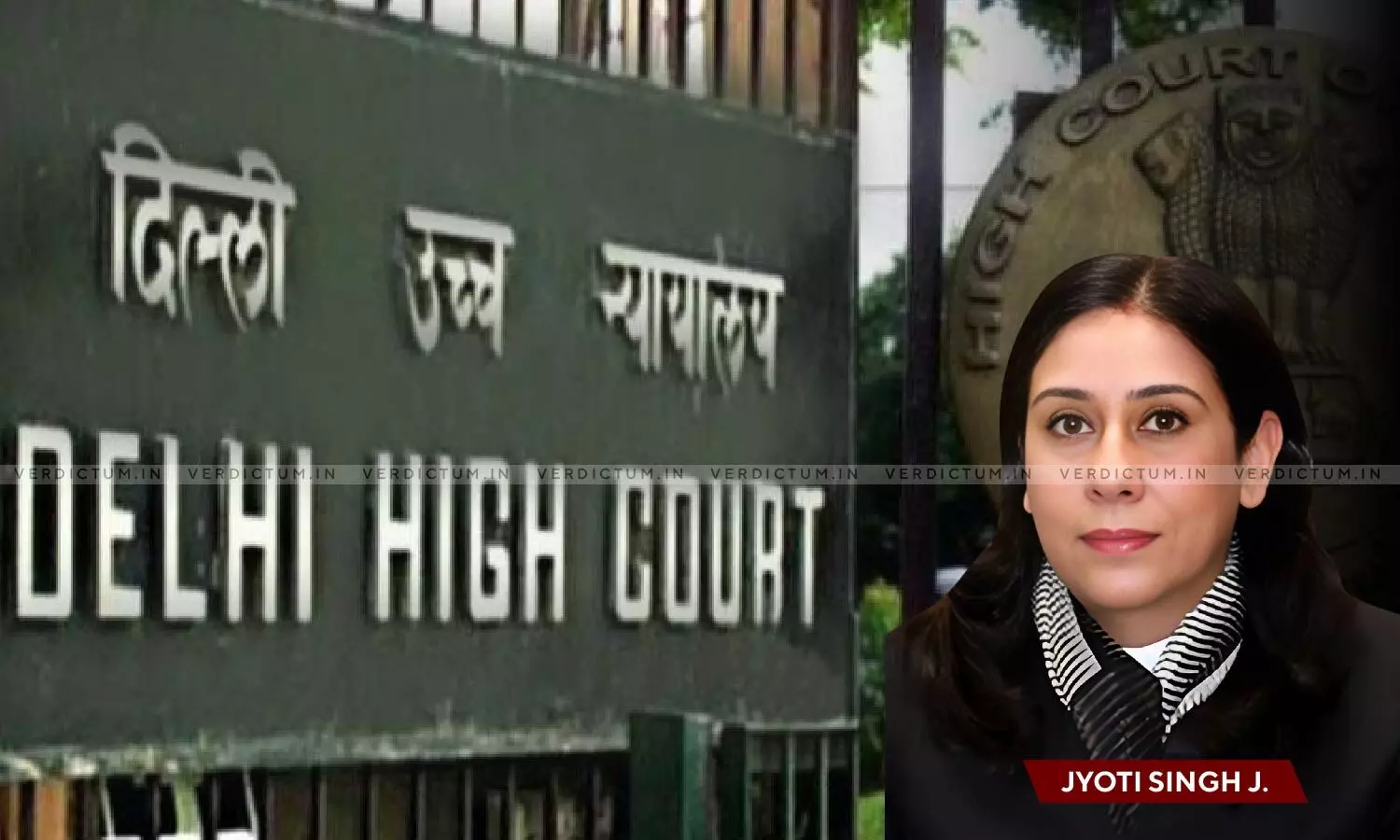
Justice Jyoti Singh, Delhi High Court
Delhi High Court: Bank Is Bound To Honour Unconditional & Irrevocable Bank Guarantees Irrespective Of Dispute Between Principal Debtor & Beneficiary
 |
|The Delhi High Court dismissed a Suit filed by Kotak Mahindra Bank Limited, seeking a decree for declaration that it is discharged from its obligations under Bank Guarantees.
The Delhi High Court reiterated that the Bank is bound to honour the unconditional and irrevocable bank guarantees (BGs) irrespective of the dispute between the principal debtor and the beneficiary/creditor.
The Court reiterated thus in a Suit filed by Kotak Mahindra Bank Limited, seeking a decree for declaration that it is discharged from its obligations under BGs.
A Single Bench of Justice Jyoti Singh observed, “A Bank Guarantee is an independent contract from underlying Agreements and therefore to test the validity of invocation of a BG, one can only look at the terms of the BG and not the underlying contract or even the main contract and it is trite that the Bank is bound to honour the unconditional and irrevocable BGs irrespective of and de hors the dispute between the principal debtor and the beneficiary/creditor.”
The Bench agreed with the submission that if any variance is made without surety’s consent in the terms of the contract between the principal-debtor and the creditor, it amounts to discharge of the surety as to the transactions subsequent to the variance.
Senior Advocate Sandeep Sethi appeared on behalf of the Plaintiff while Senior Advocate Ravi Prakash appeared on behalf of the Defendants.
Brief Facts
The Plaintiff-Bank sought to declare that the invocation of the BGs vide notices or letters is invalid, illegal and void. It also sought a decree in the sum of Rs. 48,77,13,600/- along with interest from the date of payment against the Defendant-Ministry of Road, Transport and Highways (MoRTH). Defendant No.3 was a company against which NCLT (National Company Law Tribunal) admitted insolvency proceedings and appointed Resolution Professional. During the pendency of Corporate Insolvency Resolution Process (CIRP), no legally compliant resolution plan was received by the Committee of Creditors (CoC) till 269th day and hence, by efflux of time, on 270th day, the company went into liquidation and NCLT thereafter appointed a Liquidator. MoRTH entrusted the Bihar Government the work of development, maintenance, and management of NH-104 and had resolved to take up work of rehabilitation and upgradation of 2 lanes.
It invited bids for undertaking work and the Defendant company with another one entered into two Joint Bidding Agreements for incorporation of a Joint Venture (JV). The Defendant company approached the Plaintiff for availing certain credit facilities including issuance of BGs. For sanctioning BGs, Plaintiff required company to open an Escrow Account. However, the Plaintiff averred that it realised that the payments made to the project, monies earned/generated by JV were not routed through Escrow Account and hence, it addressed a letter to MoRTH. Meanwhile, an Insolvency Petition was filed against Defendant company under Section 7 of the Insolvency and Bankruptcy Code, 2016 (IBC) before NCLT. The Plaintiff alleged that MoRTH and JV without its consent had fraudulently discontinued the escrow mechanism and modified/varied the terms of relationship between parties. It further alleged that in light of provisions of the Indian Contract Act, 1872 (ICA) and the applicable Uniform Rules for demand guarantees, it stood discharged of its obligations under BGs and upfront waiver in respect of its rights was invalid and untenable.
Reasoning
The High Court in view of the above facts, noted, “As a matter of fact and record, after two Agreements both dated 18.02.2016 were executed between MoRTH and the Joint Venture, BGs were furnished by the Plaintiff at the instance of Defendant No.3 and MoRTH being a beneficiary, in my view, has rightly invoked the BGs in terms thereof upon a communication received from Defendant No.3 that it was unable to make good its commitment of payment.”
The Court further said that there is no contract between the Plaintiff and MoRTH mandating that the monies under the project were to be routed through the Escrow Account maintained with the Plaintiff Bank and none has been shown during the course of hearing.
“Once the contract between the Plaintiff and MoRTH did not incorporate any term of Escrow Account, the question of variation under Section 133 of 1872 Act does not arise and consequently, it cannot be urged that since the variation was without surety’s consent, it stood discharged. Opening the Escrow Account was at the highest an agreement/arrangement between the Plaintiff and Defendant No.3. On this score, the judgment relied on by the Plaintiff in Indo-Afghan Agencies Ltd. (supra), where it was held that unilateral alteration of payment methodology is violation of Doctrine of Promissory Estoppel, is inapplicable”, it added.
The Court also noted that there is no variance in the terms of the contract between the principal-debtor i.e., Defendant No.3 and the creditor i.e. MoRTH since opening of the Escrow Account was not a term of the Agreements between the two parties.
“Once there is no variance inter se between the Defendants, Section 133 of the 1872 Act does not come into play and Plaintiff cannot seek discharge of its liability under the unconditional BGs issued in favour of MoRTH, as the beneficiary”, it concluded.
Accordingly, the High Court dismissed the Suit.
Cause Title- Kotak Mahindra Bank Limited v. Union of India & Ors. (Neutral Citation: 2025:DHC:5985)
Appearance:
Plaintiff: Senior Advocate Sandeep Sethi, Advocates Aman Raj Gandhi, Parthasarthy Bose, and Lakshay Kumar.
Defendants: Senior Advocate Ravi Prakash, Advocates Varun Agarwal, Syed Husain, and Adil Taqvi.